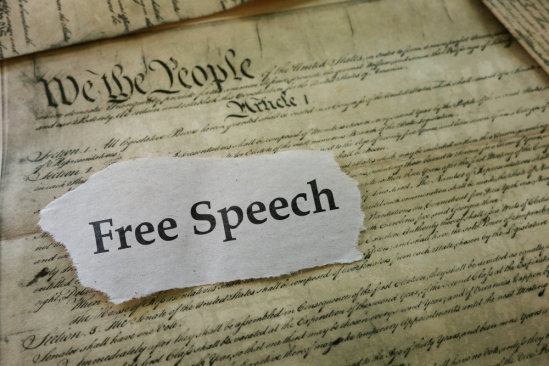By Mark Anderson and Beth Touschner
 In Brady v. Tamburini, a Rhode Island police detective prevailed in his First Amendment free speech lawsuit after being disciplined for speaking with the news media. The court found that the police department’s policy prohibiting officers from speaking to the media ran afoul of First Amendment free speech protections. It also found that several other department policies, for which Detective James Brady was disciplined, were improper as applied to him.
In Brady v. Tamburini, a Rhode Island police detective prevailed in his First Amendment free speech lawsuit after being disciplined for speaking with the news media. The court found that the police department’s policy prohibiting officers from speaking to the media ran afoul of First Amendment free speech protections. It also found that several other department policies, for which Detective James Brady was disciplined, were improper as applied to him.
Detective Brady served as the President of the local police union. After the Department terminated another officer, who brought a wrongful termination lawsuit against the Department, Detective Brady called a local reporter. He placed the phone call from his home, while off duty. He claimed that the Department did not like the terminated officer because he “would write traffic tickets for ‘anybody, no matter who they were.’” Detective Brady also alleged there was an “unwritten” Department rule to process traffic tickets in municipal court rather than through the Rhode Island Traffic Tribunal, which the terminated officer refused to do because he worked “by the book.”
The Department conducted an internal investigation of Detective Brady for speaking with the media. This resulted in a second news article about the internal investigation. The Department disciplined Brady for violation of several Department policies, including Conduct Unbecoming an Officer, Dissemination of Information, Public Information/Media Relations, and Internal Investigations.
The Department argued that its policy prohibiting employees from speaking to the media served to maintain “accuracy, control, confidentiality, and efficiency in the conduct of officers.” Detective Brady, on the other hand, argued that the employer’s prohibition on speaking to the media violated his First Amendment right to free speech.
The court agreed with Detective Brady. Seeking to balance the rights of public employees speaking out on matters of public concern with the government employer’s interest in controlling the operation of its workplace, the court found that Brady was speaking as a citizen when he spoke to the news reporter and that his speech was a matter of public concern. The court noted that “matters related to the workings of a police department frequently have been held to be matters of public concern.” The court further found that the Department had improperly disciplined Detective Brady because he spoke as a private citizen on matters of public concern. The court noted that Detective Brady had alleged corruption in the Department concerning its “unwritten rule” on the processing of traffic tickets. Finally, the court found that the police chief who had imposed the discipline was not entitled to immunity because the law was “clearly established” prior to the time he punished Detective Brady and that his punishment of Brady was “an unconstitutional effort to stifle protected speech that any reasonable superior officer should have understood violated First Amendment rights.”
This case presents a good reminder that government employees do not lose their First Amendment free speech protections simply by virtue of their employment. If the employee is speaking as a private citizen about a matter of public concern, they are entitled to protection absent an adequate justification by the government for treating the employee differently from a member of the general public.
**Visit our Premium Website for more information on The Civil Rights of Public Safety Employees and The Right to Free Speech.**


